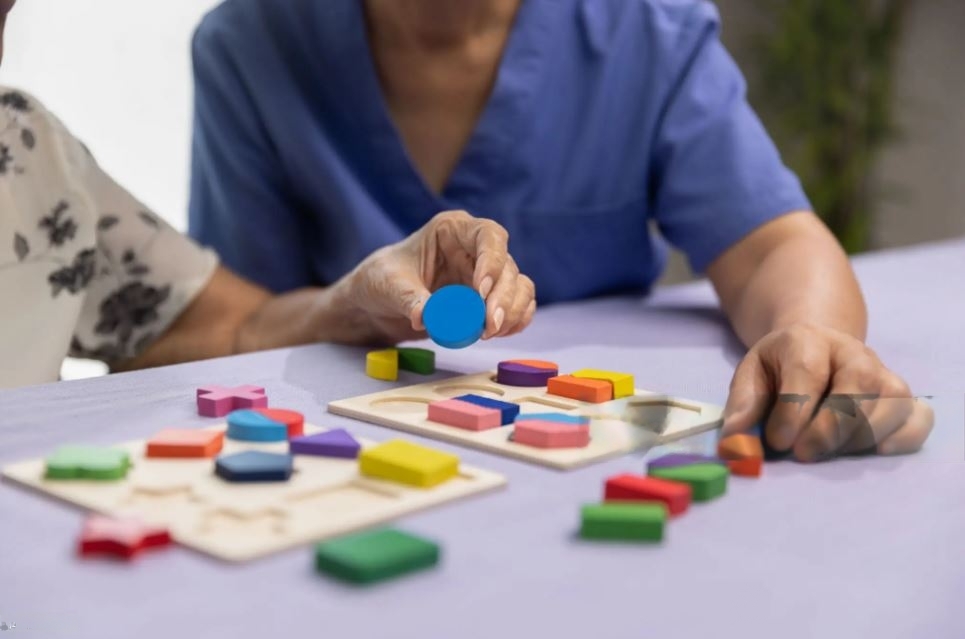The Complex Connection: How Does Mental Health Affect Identity?
How Does Mental Health Affect Identity? In the Complex web of human experience, the relationship between mental health and identity is a profound and often overlooked aspect of our lives. As we navigate the complexities of our minds, the impact of mental health on our sense of self becomes increasingly evident. This blog explores the multifaceted interplay between mental health and identity, delving into how our mental well-being shapes and defines who we are. Additionally, we will touch upon the importance of tools like fall detection devices, medical alert jewellery, and personal alarms for seniors in maintaining a sense of security and independence, particularly in the context of the Canadian healthcare landscape.
Understanding Mental Health
Mental health refers to our emotional, psychological, and social well-being. It affects how we think, feel, and act, influencing our ability to handle stress, relate to others, and make choices. Just as physical health requires attention and care, so does mental health. However, mental health is often stigmatized or overlooked, leading to a lack of awareness and understanding.
The Stigma Surrounding Mental Health
One of the primary challenges in the realm of mental health is the persistent stigma attached to it. Many people hesitate to discuss their mental health struggles due to fear of judgment or societal misconceptions. Breaking down this stigma is crucial for creating an environment where individuals feel comfortable seeking help without shame or discrimination.
Common Mental Health Challenges AND How Does Mental Health Affect Identity
Various factors contribute to mental health challenges, ranging from genetic and biological factors to life experiences and family history. Common mental health issues include anxiety disorders, depression, bipolar disorder, and schizophrenia. It’s important to recognize the signs and symptoms of these conditions to provide timely support and intervention.

The Impact of Lifestyle on Mental Health
Our lifestyle choices significantly impact our mental well-being. Factors such as diet, exercise, sleep, and stress management play pivotal roles in maintaining a healthy mind. Incorporating mindfulness practices, engaging in regular physical activity, and ensuring adequate sleep are simple yet effective ways to promote mental wellness.
The Role of Social Connection
Human beings are inherently social creatures, and our connections with others profoundly influence our mental health. Loneliness and social isolation can contribute to the development of mental health issues, while strong social support networks provide a protective buffer. Cultivating meaningful relationships and fostering open communication are essential components of mental well-being.
Seeking Professional Help
Just as we consult healthcare professionals for physical ailments, seeking help from mental health professionals is equally important. Therapists, counsellors, and psychiatrists are trained to provide support, guidance, and treatment for various mental health concerns. Recognizing the importance of mental health care and eradicating the stigma associated with seeking help are critical steps toward building a mentally healthy society.
Understanding the Intersection of Mental Health and Identity:
At its core, identity is a dynamic construct influenced by various factors, with mental health standing out as a prominent player. Our thoughts, emotions, and behaviours are intricately tied to our mental well-being, collectively contributing to the formation and evolution of our identity. Positive mental health can foster a strong sense of self, allowing individuals to navigate life’s challenges with resilience and a clear understanding of their values and goals.
- The Impact of Mental Health Challenges on Identity: Conversely, mental health challenges can significantly disrupt this delicate balance. Conditions such as depression, anxiety, and mood disorders can alter the way individuals perceive themselves and the world around them. The struggle with mental health issues may lead to feelings of isolation, low self-esteem, and a distorted self-image. This, in turn, can have a profound impact on one’s identity, causing a shift in priorities, interests, and even a sense of purpose.
- Fall Detection Devices and Medical Alert Jewelry: Empowering Seniors in Canada: Beyond the internal dynamics of How Does Mental Health Affect Identity, external factors play a crucial role, especially for vulnerable populations such as seniors. In Canada, the ageing population faces unique challenges related to health and safety. Fall detection devices, medical alert jewellery, and emergency necklaces for seniors are indispensable tools that contribute to both physical safety and mental well-being.
- Fall Detection Devices in Canada: Fall detection devices, tailored to the Canadian context, provide an added layer of security for seniors. The rugged terrains and varying weather conditions in Canada make falls a significant concern for the elderly. These devices utilize advanced technology to automatically detect falls and send timely alerts to emergency services or designated contacts, ensuring swift assistance in critical situations.
- Medical Alert Jewelry and Emergency Necklaces for Seniors in Canada: Medical alert jewellery, Including pendants and necklaces, serves as a discreet yet vital accessory for seniors. These pieces are not only functional but also aesthetically designed, reducing the stigma associated with traditional emergency devices. In the event of a medical emergency, seniors can quickly access help by pressing a button on their jewellery, establishing a direct line of communication with emergency response teams.
- Personal Alarms for Seniors: Fostering Independence and Peace of Mind: Independence is a fundamental aspect of identity, and seniors, despite potential health challenges, value their autonomy. Personal alarms for seniors play a pivotal role in maintaining this independence by providing a portable and easily accessible means of calling for help. These devices, often designed as compact and user-friendly gadgets, empower seniors to venture outside their homes with confidence, knowing that assistance is just a button press away.
- Living Well Companion: Integrating Technology with Mental Well-being: The concept of a “Living Well Companion” encapsulates the synergy between technology and mental well-being. Beyond the immediate physical safety offered by fall detection devices and personal alarms, these tools contribute to the overall mental health of seniors. Knowing that they have reliable and efficient ways to seek help fosters a sense of security, reducing anxiety and promoting a positive mindset among seniors.
Conclusion:

In the dance of human existence, mental health and identity share a profound connection. The state of our mental well-being shapes our perceptions, influences our choices, and ultimately defines who we are. Understanding and addressing the impact of mental health challenges on identity is crucial for fostering a healthy and resilient sense of self.
For seniors in Canada, the integration of advanced tools such as fall detection devices, medical alert jewellery, emergency necklaces, and personal alarms is instrumental in ensuring both physical safety and mental well-being. These technologies not only offer practical solutions for emergencies but also contribute to the preservation of independence and a positive sense of identity among the elderly population.
As we navigate the complex interplay between mental health and identity, embracing innovative solutions that promote well-being becomes paramount. The evolving landscape of healthcare technology, especially in the context of Canada, reflects a commitment to creating a supportive environment where individuals can age gracefully, maintaining their autonomy and identity with dignity.
More From our Library
Cold Winter Challenge: Safeguarding Seniors and Disabled Individuals in Canada 2024
The Emotional Impact of Best Senior Emergency Alert System
Reducing the Fear of Falling for Seniors: A Comprehensive Guide
Navigating the Challenges of Dementia Care: Senior Caregiving Tips and Strategies
Balancing Self-Care For Caregivers: Tips for Caregivers
Effective Communication in Senior Caregiving: Tips for Strengthening Relationships 2023
Contact Us
Our team is ready and available to help you find the right solution. Fill out the form to receive a callback or contact us:





































